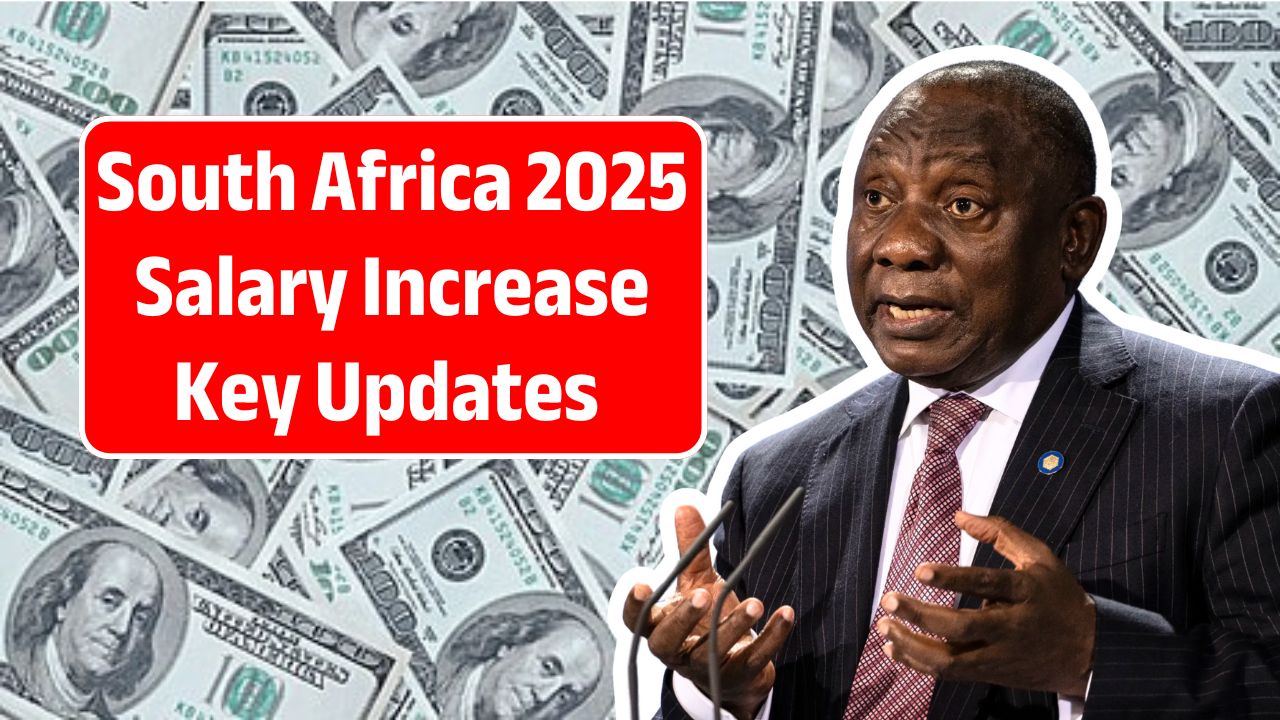South Africa 2025 Salary Increase : In 2025, South Africa is set to introduce notable salary adjustments across multiple sectors to enhance workers’ financial stability and reduce economic disparities. This article explores the details of these wage increases, their impact, and the broader economic context.
Public Sector Salary Adjustments
Government employees, including teachers, nurses, police officers, and administrative personnel, will receive a 5.5% salary increase. This increment is part of an agreement aimed at retaining skilled professionals and ensuring public sector salaries remain competitive. The salary hike is scheduled to take effect on April 1, 2025.
In addition to the wage increase, public sector employees will receive improved benefits:
- Housing Allowance: Increased to R1,900 from the previous R1,784.55, with further adjustments expected in July 2025.
- Transport Allowance: Adjusted to reflect fuel price fluctuations, ensuring employees receive adequate commuting support.
These additional benefits aim to provide financial relief and improve overall well-being for government employees.
National Minimum Wage Increase
Starting March 1, 2025, the National Minimum Wage (NMW) will increase by 4.4%, rising from R27.58 to R28.79 per hour. This change equates to approximately $1.55 per hour at current exchange rates. The new minimum wage will apply to sectors such as domestic work, agriculture, retail, and entry-level positions in the hospitality industry. The objective of this increase is to help low-income earners keep up with inflation and maintain their purchasing power.
Private Sector Wage Agreements
In the private sector, salary adjustments vary based on industry negotiations and collective bargaining. For example, Sibanye Stillwater, a leading mining company, has reached an agreement granting its lowest-paid workers a monthly increase of 900 rand ($50.91), while miners, artisans, and officials will receive a 5.5% raise. Such agreements highlight the ongoing collaboration between employers and labor unions to ensure fair wages and industrial stability.
Economic Impact and Government Measures
These wage revisions take place amid efforts to balance economic stability with social welfare. The South African government is addressing a R60 billion fiscal deficit, partly due to the discontinuation of U.S. funding for HIV/AIDS programs. One of the proposed solutions is a 0.5% increase in Value-Added Tax (VAT), though this has sparked opposition due to concerns about the rising cost of living.
To further support key sectors, the government has allocated additional funds:
- Healthcare: A budget of 28.9 billion rand ($1.5 billion) to support medical staff salaries and expand healthcare services for the country’s large HIV-positive population.
- Defense: An extra 5 billion rand ($271 million) to strengthen military capabilities, reflecting South Africa’s commitment to regional security and peacekeeping operations.
These fiscal policies aim to address urgent national needs while maintaining financial stability.
Conclusion
The 2025 salary increases in South Africa are a strategic effort to enhance worker earnings, align wages with inflation, and promote economic equity. While these adjustments provide financial relief for many employees, ongoing discussions between government bodies, labor unions, and employers will be crucial to ensuring that wage policies continue to support sustainable growth and economic stability.




